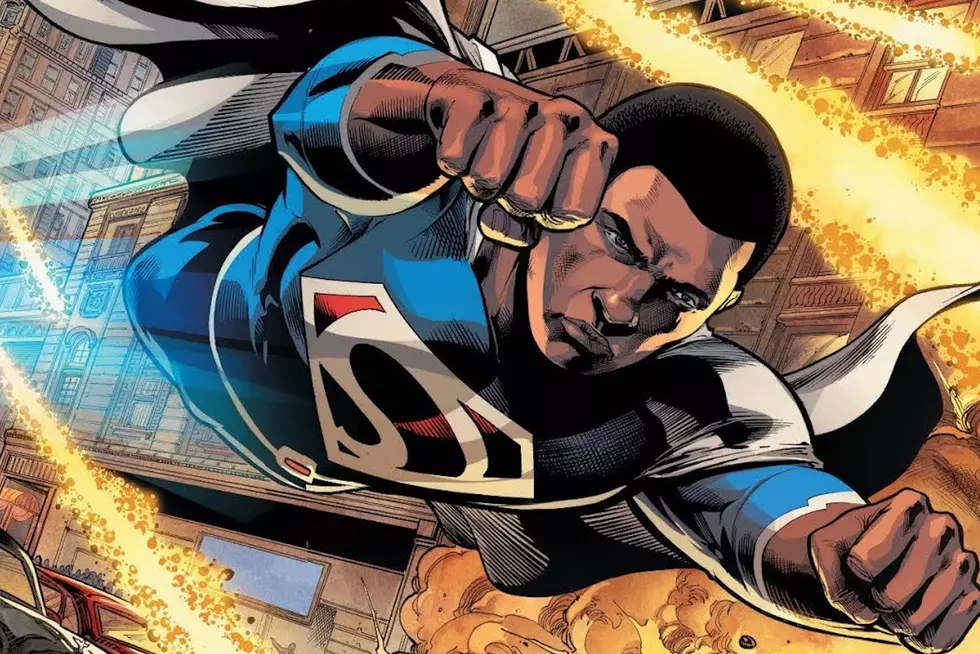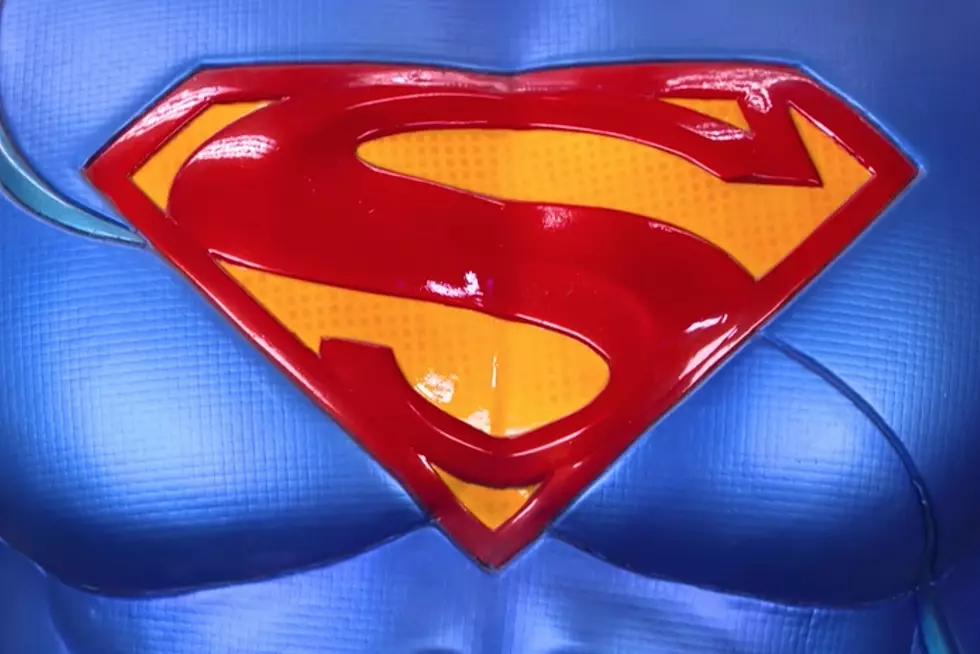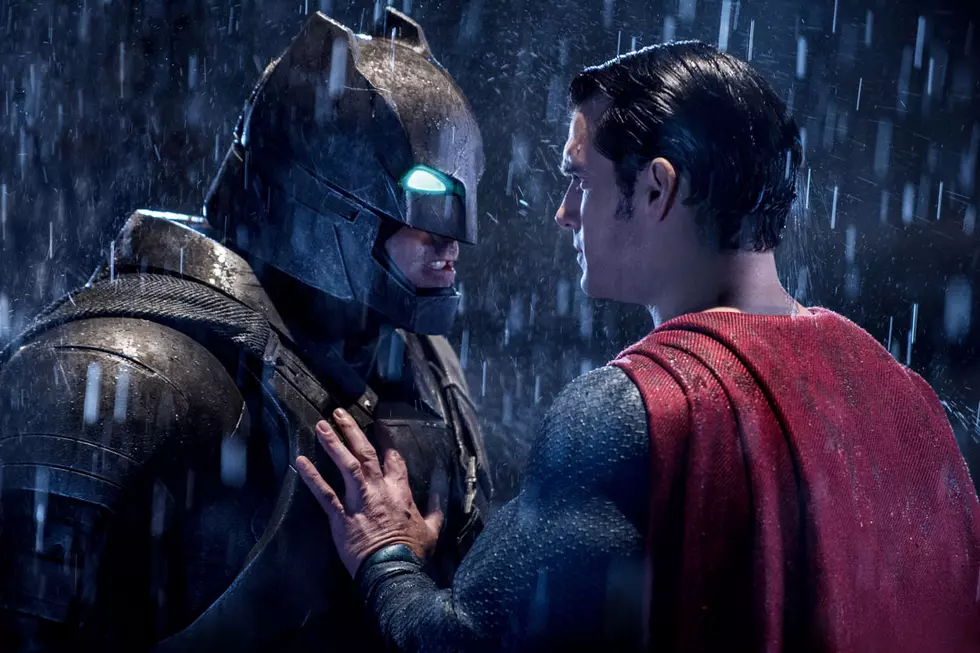
Ask Chris #287: The Death And Return Of Superman
Q: I’m reading The Death and Return of Superman, and it's way better than I've remembered. Why do people hate it if it works? And am I crazy to say this was the last time DC did right trying to contemporize Superman? -- @robotfrom1984
A: It seems like a lot of people have been working their way through the Death of Superman over the past few weeks, which probably has a lot to do with DC recently putting the entire saga out in four gigantic paperbacks. I even spent the last week reading through it for the first time myself --- I'd read Death, of course, but I never made it through the rest of the story to get the whole weird picture.
That said, I'm not sure that it's actually all that hated. I mean, sure, it's easy to dismiss it for its excesses, but it's a hugely successful story that, for better or worse, defined Superman for a decade. And like you said, when you read it all at once, you can see that it does a whole lot that goes way beyond just having Superman get punched to death by a bone monster.
It's interesting that you bring up the idea of The Death and Return of Superman as an attempt to contemporize Superman, because it's something that I hadn't really thought of until I got into "Reign of the Supermen" and saw how hard they were were working to make it seem like one of these four new characters was actually going to be a permanent replacement for the Man of Steel.
I'd always sort of assumed that everyone went into this story knowing that Superman wasn't really dead and that he'd be back within a few months --- well, everyone who was already reading supehero comics, anyway. See, that's the big problem with people coming into comic book stores with the death of a major character: For people who aren't familiar with the conventions of the genre, death is something that seems a little more permanent than it usually is with superheroes. You get plenty of curiosity (and speculative investing) from crowds who want to know how Superman died, but they don't have much of a reason to come back next month to keep reading the story. Seriously, everyone always thinks I'm exaggerating about this, but when I was working at a comic book store in the mid-2000s, we couldn't get through two weeks without someone wandering in and being absolutely shocked that Superman comics were still coming out when that guy died in 1993.
But anyway, even though it's easy to look back on The Death of Superman and think that of course he's coming back in six months, the stories themselves treated it like it was going to be a permanent change. It makes sense that they would, too --- over the course of the previous decade, DC had made a habit of establishing legacy characters for the modern age, and even though Superman himself had gone through a pretty thorough reboot only seven years earlier, he's still a character who dates back to the dawn of the genre. If they were willing to replace the Flash and Robin, who's to say that they wouldn't do the same thing with Superman?
It's something that comes through when you read "Funeral For a Friend," and see how much time they put into everyone reacting to Superman dying like... well, like Superman died. The issue of Justice League America where the heroes of the DC Universe just gather at the Justice League Compound because they're not sure where else to go or what they should do is weirdly affecting, even if it's not a great comic, because of how real it manages to feel.
And then you get to the part where the other four Supermen show up.
It's hard to look back at The Death of Superamn without also thinking about Knightfall --- for me, at least. The stories aren't just contemporary, they're simultaneous --- Bruce Wayne shows up as Batman for Superman's funeral, and by the time Superman comes back and swings by Gotham on his way to the Coast City memorial, it's Jean-Paul Valley in his armored AzBats suit --- and because of that, it's hard not to see the themes from one bleeding into the other.
I've always said that one of the big themes of Knightfall was taking the complaints of fans who wanted Batman to be a darker, edgier, more murderous vigilante and showing exactly why that's a terrible idea that wouldn't work. With Superman, it's the same idea, but done in a way that's not quite as confrontational --- instead of showing why different take on Superman wouldn't work, "Reign of the Supermen" feels like it's about exploring all the ways that they could change the character.
For all that John Byrne did to bring Superman into the modern era with Man of Steel and his run on the relaunched Superman and Action, he was still basically the same character. The changes, like getting rid of his years as Superboy and tweaking his powers to make him a little more vulnerable --- the entire reason that he could "die" in this story in the first place --- were important, but they certainly weren't as extreme as what you'd seen with other characters. So what if they had made those bigger changes? What if he was more alien? What if he was more human? What if he was a cool '90s teen? What if he was literally just the Terminator?
Admittedly, none of them really work out, but even the Superman who's an emotionless killer who shatters a safecracker's hands as punishment for a robbery isn't presented as an entirely irredeemable take on the character. Unless you consider Guy Gardner's unqualified endorsement to be the gigantic red flag, I mean.
In retrospect, it's pretty obvious that the guy whose face is mostly a terrifying metal skull would end up being the bad one, but they go to great lengths to try to convince you that he might be the real guy, up to and including having the president declare him to be the government's official pick for the job. Whether or not anybody bought the idea that one of these characters was going to be the real Superman, the creators behind those books committed to it, no matter how weird it got.
And that's the great thing about reading the entire saga: The longer it goes on, the weirder it gets. I mean, the fight against Doomsday is about as straightforward as it gets, but once that's over? Things get bizarre. Seriously, did y'all know there was an issue of this story where Pa Kent has a heart attack and goes to the afterlife to stop demons from dragging Superman's soul to Hell?
In the issue where it happens - and I want to stress that Superman's father dying for a minute and then teaming up with dead Superman to keep Superman's soul from being dragged to actual hell is a story that they knock out in one issue --- it's actually left a little vague as to whether or not this actually happens or if it's just a hallucination that Pa's having on the operating table. A few months later, though, once Superman's back for good, Doctor Occult shows up and straight up tells him that yes, there were demons trying to claim his soul and his dad had to die for a minute to help him out. It's one of two issues where things get so bizarre that they have to get a character to step out of the story and literally explain what's happening.
The other, incidentally, is when they're trying to explain what Cyborg Superman's whole deal even is, and I gotta say, it did not do a great job of making that guy make any sense at all.
The story hits a fever pitch of weirdness when Coast City is destroyed, and while that's arguably the most important thing that happens outside of the battle with Doomsday --- it provides not only the catalyst for Superman's return, but the reveal of who the Man of Tomorrow and the Last Son of Krypton really are, and a massive change for Green Lantern over the following year --- it's the piece that also doesn't really fit.
In a story where Doomsday almost destroying Metropolis (and killing Superman in the process) is treated as a world-shaking event that causes everyone in the DCU to stop in their tracks to mourn, Coast City being wiped off the map feels like it's a step too far. The story continually harps on the idea of 7,000,000 people dying in Coast City alone, and there are mentions of thousands of people dying in places like Portland and Denver from the literally Earth-shattering force that can obliterate a sizable chunk of California.
I'm going to guess that a lot of that ends up being dealt with in Green Lantern, but here, it seems like it's just the background for the heroes' battle against Engine City --- and the contrast to the months of reaction to Superman dying is really noticeable.
On the other hand, it does give us this scene, which is amazing.
I'd never thought about it until I read that page, but of course that's what Superman does when he needs to destroy an entire city and he doesn't have his super-powers back yet. He just grabs a bunch of guns! Dude ain't Batman, he doesn't hate those things. It's great.
So yeah, there's a lot going on in that story --- I barely mentioned Steel, and I didn't touch on all the Kirby influence that comes through with Superboy and the Cadmus project, and how the idea of doing a Death of Superman story where Lex Luthor isn't the one responsible is actually dealt with pretty well, or how the big triumph of the story is that it manages to build logically on pieces that were already in place, like the Eradicator and the Kryptonian Birth Matrix.
There is one more thing I want to add, though: Jon Bogdanove is awesome.
Seriously, how are we not talking about that dude literally all the time?
More From ComicsAlliance









